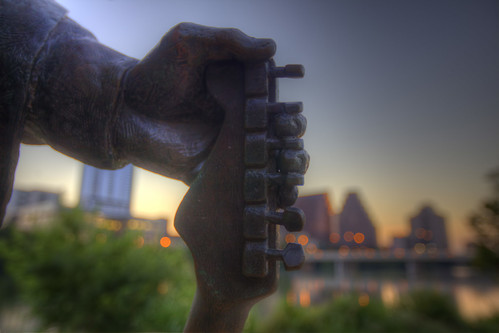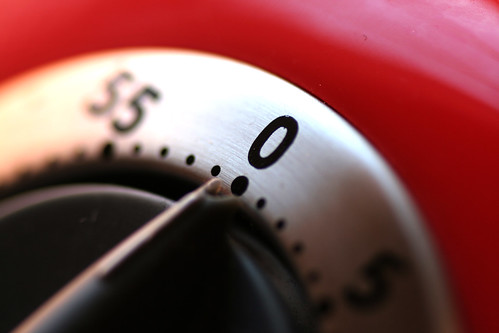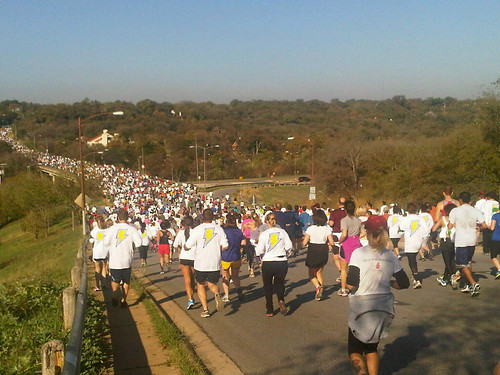 Life. Love. The pursuit of happiness. Lather. Rinse. Repeat.
Life. Love. The pursuit of happiness. Lather. Rinse. Repeat.
It's a journey that takes us on a moment-to-moment adventure driven by countless motivating factors. Some are positive. Others are negative. We find ourselves either moving towards something good or away from something bad.
I don't think that many people would ever expend the time and effort to differentiate between the two. But how we view these motivators, at the most basic level, can directly impact our lives, our relationships, and our happiness.
Are you focusing on the presence of positives or the absence of negatives? The differences can be subtle but substantial.
 The world of musculoskeletal care is a strange animal if ever there was one. It is a world of imbalances and mal-alignments, asymmetry and inflexibility. Or so we are taught, and have been for decades.
The world of musculoskeletal care is a strange animal if ever there was one. It is a world of imbalances and mal-alignments, asymmetry and inflexibility. Or so we are taught, and have been for decades.
The world of musculoskeletal care is is also the same realm that would benefit most from an understanding of clinical anatomy, statistics, and logic.
Diagnosticians are always seeking some relationship between a patient's signs, symptoms, and some particular patho-anatomical entity. But the problem lies in the realm of normalcy. You see, abnormal is, without question, the new normal.
 It was a solitary musical moment that would be forever etched in my mind. What it became was a life-changing event of epic proportions.
It was a solitary musical moment that would be forever etched in my mind. What it became was a life-changing event of epic proportions.
August 16, 1984. Thirty years ago. It was an early 15th birthday present - a show at the National Arts Center in Ottawa featuring none other than Stevie Ray Vaughan.
The first notes fired out from the worn-down Fender Strat that night can still be heard echoing in the back of my mind. My jaw dropped and I sat there mesmerized. I remember the moment like it was yesterday.
Stevie Ray spoke to me in a language that I understood. Direct. Heartfelt. Raw. And it changed my life.
 The concept of periodization has been around for quite some time in the sports world. Coaches build training schedules around "periods" of training and recovery in a cyclical fashion.
The concept of periodization has been around for quite some time in the sports world. Coaches build training schedules around "periods" of training and recovery in a cyclical fashion.
However, the more perspectives you read on periodization in the training world, the more you realize that certain elements of it have been a little bent and twisted out of shape. More on that later.
But at least periodization actually exists in the world of sport training. We know that the timing of training sessions is important. Recovery is critical as training adaptations require time without subsequently "de-training". So what makes injury recovery any different?
Absolutely nothing.
 A thousand words. It's about 4 pages of a novel. Or two of my blog posts. Or a scant few minutes of your precious time, depending on how quickly you read.
A thousand words. It's about 4 pages of a novel. Or two of my blog posts. Or a scant few minutes of your precious time, depending on how quickly you read.
We've all heard that a picture is also worth a thousand words. An image, combined with a moment of quiet reflection, can conjure up plenty of meaning - without saying a word.
I wonder how many words silence is worth? I guess it all depends on the context.
 June 4 is National Running Day, a day to celebrate the sport of running. As a coach and physiotherapist, I work with runners on a regular basis. Contrary to popular belief, running injuries don't occur because of mal-alignments or muscle imbalances. They are typically a function of some common training mistakes. Running injuries will, however, be counter to the full enjoyment and appreciation of running, the sport.
June 4 is National Running Day, a day to celebrate the sport of running. As a coach and physiotherapist, I work with runners on a regular basis. Contrary to popular belief, running injuries don't occur because of mal-alignments or muscle imbalances. They are typically a function of some common training mistakes. Running injuries will, however, be counter to the full enjoyment and appreciation of running, the sport.
If you are already a runner, today is a great day to spread the word and to get out and enjoy the sport. If you are thinking about starting a running program, then there is no better time than the present! As the saying goes, a journey of a thousand miles begins with a single step. In order to make that first step just that much safer and more enjoyable, I present to you seven tips for new runners.
 I was sitting on the living room floor. It was the summer of 1984. The decision in question was spread out in front of me: two pieces of paper that, frankly, held my destiny and future.
I was sitting on the living room floor. It was the summer of 1984. The decision in question was spread out in front of me: two pieces of paper that, frankly, held my destiny and future.
One of those pieces of paper was an acceptance letter from Queen's University. The second piece of paper was an acceptance letter from Ryerson. It was what was contained on each that was most important.
It was a decision being made at the ripe-old age of 18 that would ultimately have an impact on, well, the rest of my life.
 "Running Injuries: Etiology And Recovery- Based Treatment" (co-author Bridget Clark, PT) appears in the third edition and fourth editions of "Clinical Orthopaedic Rehabilitation: A Team Approach" by Charles Giangarra, MD and Robert C. Manske, PT.
"Running Injuries: Etiology And Recovery- Based Treatment" (co-author Bridget Clark, PT) appears in the third edition and fourth editions of "Clinical Orthopaedic Rehabilitation: A Team Approach" by Charles Giangarra, MD and Robert C. Manske, PT.
 Allan Besselink, PT, DPT, Ph.D., Dip.MDT has a unique voice in the world of sports, education, and health care. Read more about Allan here.
Allan Besselink, PT, DPT, Ph.D., Dip.MDT has a unique voice in the world of sports, education, and health care. Read more about Allan here.
 Top 5 finalist in three categories: "Best Overall Blog", "Best PT Blog" and "Best Advocacy Blog".
Top 5 finalist in three categories: "Best Overall Blog", "Best PT Blog" and "Best Advocacy Blog".